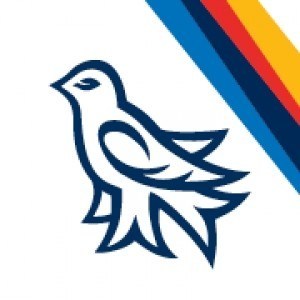Photos of university / #uwinnipeg
The Aboriginal Governance undergraduate program at The University of Winnipeg offers students an in-depth understanding of the governance structures, policies, and issues that affect Indigenous communities across Canada. Designed to prepare students for meaningful engagement in Indigenous governance, public administration, and policy development, this three-year program combines theoretical foundations with practical applications. Throughout their studies, students explore topics such as Indigenous history, sovereignty, legal frameworks, leadership, economic development, and community planning, gaining a comprehensive perspective on the unique challenges and opportunities faced by Indigenous nations. The curriculum emphasizes the importance of cultural awareness, ethical considerations, and the integration of Indigenous knowledge systems into contemporary governance practices. Students have opportunities for experiential learning through community-based projects, internships, and collaborations with Indigenous organizations, facilitating real-world experience and networking within Indigenous governance sectors. The program aims to develop critical thinking, leadership skills, and a deep understanding of Indigenous rights and self-determination, preparing graduates for careers in government, non-profit organizations, advocacy, consultancies, and further academic pursuits. Faculty members are experts in Indigenous studies, public administration, and related fields, dedicated to fostering an inclusive and respectful learning environment that values Indigenous perspectives and sovereignty. Upon completion, graduates will be equipped with the knowledge and skills necessary to support the development of effective, culturally appropriate governance systems that respect Indigenous traditions and promote social and economic well-being. The Aboriginal Governance program at The University of Winnipeg is committed to empowering future leaders who will contribute to reconciliation, sovereignty, and the sustainability of Indigenous communities across Canada and beyond.
The Bachelor of Arts in Aboriginal Governance at The University of Winnipeg is a comprehensive three-year undergraduate program designed to equip students with an in-depth understanding of Indigenous governance systems, issues, and policies within Canada and beyond. This interdisciplinary program integrates courses from political science, Indigenous studies, history, and law, providing a well-rounded perspective on the historical and contemporary context of Aboriginal governance. Throughout the program, students explore topics such as Indigenous sovereignty, treaty rights, governance structures, law-making processes, and the social, cultural, and economic factors influencing Indigenous communities. The curriculum emphasizes critical thinking, respectful engagement, and collaborative approaches to governance, preparing graduates for roles in government agencies, Indigenous organizations, advocacy groups, and community leadership.
Students will have opportunities to participate in experiential learning through internships, community projects, and seminars featuring Indigenous leaders and experts. The program also emphasizes the importance of understanding the diversity of Indigenous nations and respecting their unique governance models and cultural practices. By integrating traditional knowledge with contemporary governance frameworks, students learn to develop effective policies that support Indigenous self-determination and sovereignty. The program's multidisciplinary approach ensures graduates are well-equipped to address complex governance challenges faced by Indigenous communities and organizations. Upon completion, students will acquire valuable skills in policy analysis, negotiation, leadership, and intercultural communication. The Bachelor of Arts in Aboriginal Governance at The University of Winnipeg prepares students to actively contribute to the promotion and advancement of Indigenous rights and governance, fostering meaningful change and reconciliation in Canadian society and beyond.
Program Requirements for Aboriginal Governance (3 years):
The Bachelor of Aboriginal Governance program at The University of Winnipeg is designed to provide students with an in-depth understanding of governance issues pertinent to Indigenous communities in Canada. To successfully complete this program, students must fulfill a combination of coursework, experiential learning, and community engagement components over the three-year duration.
Students are required to complete a minimum of 90 credit hours, including core courses, electives, and a capstone project. The core curriculum encompasses foundational courses such as Introduction to Aboriginal Governance, Indigenous Legal Systems, Native Political Structures, and Indigenous Knowledge Systems. These courses aim to develop a comprehensive understanding of Indigenous political institutions, self-governance mechanisms, and the historical and cultural contexts that shape Indigenous governance.
Elective courses allow students to explore specialized areas such as Indigenous Economic Development, Land Rights, Environmental Stewardship, and Treaty Relations. To foster practical skills, the program emphasizes experiential learning through internships, community-based projects, or co-op placements with Indigenous organizations, government agencies, or NGOs. Students are encouraged to participate in research projects and attend seminars and conferences related to Indigenous governance issues.
A significant component of the program is the capstone project, which requires students to apply their learning to real-world governance challenges faced by Indigenous communities. This project involves research, community consultation, and the development of policy recommendations or governance frameworks.
Students must also meet the university’s general degree requirements, including maintaining a minimum GPA, completing language proficiency or communication skills assessments, and demonstrating cultural competency through community engagement activities.
In addition, students are encouraged to participate in cultural events, workshops, and seminars to deepen their understanding of Indigenous cultures and perspectives. The program advocates for a multidisciplinary approach, integrating insights from political science, law, history, and Indigenous studies, fostering a holistic understanding of Indigenous governance issues in Canada and beyond. The completion of this program prepares graduates for careers in public administration, policy analysis, Indigenous governance and leadership, and related fields, as well as for further academic study.
The University of Winnipeg offers a comprehensive financing options framework for students enrolled in the Aboriginal Governance undergraduate program. Tuition fees for this three-year bachelor's degree are structured to be competitive within the Canadian higher education landscape, with detailed fee schedules available on the university's official website. Incoming students are encouraged to explore various funding sources to support their studies, including government-sponsored financial aid programs, scholarships, and bursaries specific to Indigenous students. The Manitoba Student Aid Program provides additional financial assistance through grants and loans, which can cover part or all of the tuition costs depending on the student's financial situation and eligibility criteria.
The university also offers a range of scholarships that are tailored for Aboriginal students, acknowledging the unique cultural and educational needs of Indigenous communities. These scholarships often require application well in advance of the academic year and are awarded based on academic achievement, community involvement, and financial need. Furthermore, students may participate in work-study programs or part-time employment opportunities facilitated by the university, providing both income and professional experience relevant to their field of study.
In addition to external funding, many students in the Aboriginal Governance program receive support from Indigenous organizations and cultural foundations committed to advancing Indigenous education and leadership. These organizations often offer project-specific grants or personal awards, which can significantly reduce the financial burden of university studies. The university also provides financial planning resources and counseling services to assist students in navigating their options, budgeting effectively, and applying for various forms of financial aid.
International students enrolled in the program should also explore international student scholarships offered by the university, which can help offset higher tuition rates. It is important for prospective students to verify the latest information on fees and funding opportunities through the university's official channels, as these are subject to change annually. Overall, the University of Winnipeg strives to make Aboriginal Governance accessible through a broad spectrum of financial support mechanisms, ensuring that financial barriers do not hinder Indigenous students from pursuing higher education and leadership roles within their communities.
The Aboriginal Governance program at the University of Winnipeg is a comprehensive three-year degree program designed to prepare students for leadership roles within Indigenous communities and organizations. This program provides students with an in-depth understanding of the historical, political, social, and economic issues affecting Aboriginal peoples in Canada. It combines academic coursework with practical skills development to ensure graduates are well-equipped to contribute effectively to governance and policy-making processes. The curriculum covers a wide range of topics, including Indigenous law, political science, community development, cultural studies, and public administration, emphasizing the importance of Indigenous perspectives and self-determination. Students have opportunities for experiential learning through internships, community engagement projects, and partnerships with Indigenous organizations, allowing them to apply theoretical knowledge in real-world settings. The program also focuses on developing leadership qualities, communication skills, critical thinking, and ethical decision-making.
Throughout their studies, students learn about Indigenous history, sovereignty, treaty rights, and contemporary challenges faced by Indigenous communities. The program aims to foster cultural awareness and sensitivity, promoting respect for Indigenous traditions and worldviews. Faculty members are experts in Indigenous governance, law, and policy, ensuring that students receive mentorship and guidance rooted in Indigenous perspectives. Upon graduation, students are prepared for careers in Indigenous governance, public administration, advocacy, community development, and policy analysis. The program also serves as a foundation for students interested in pursuing advanced studies related to Indigenous issues. The University of Winnipeg supports Indigenous students through dedicated academic advising, Indigenous student services, and a welcoming campus environment that respects and celebrates Indigenous cultures. Overall, the Aboriginal Governance program is dedicated to building capable leaders who will positively influence the future of Indigenous communities and contribute to the ongoing process of reconciliation and self-governance in Canada.



